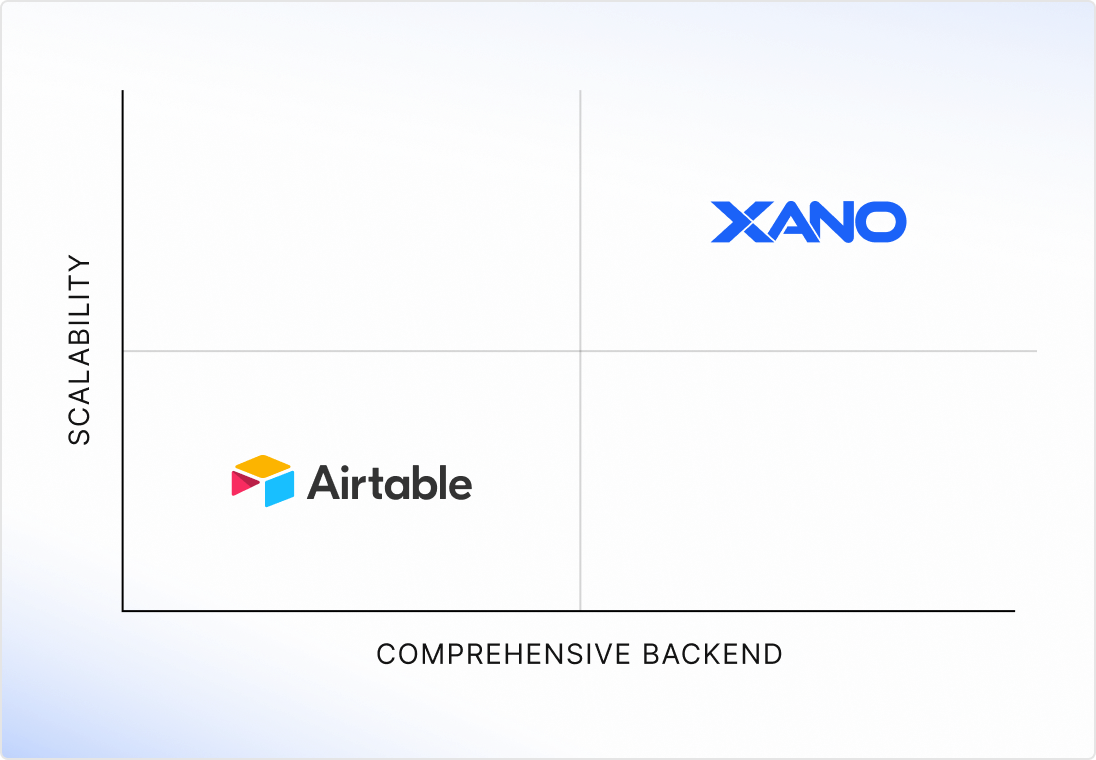Which is right for your project?
Xano vs. Airtable
Xano and Airtable are powerful no-code tools that can be utilized in development projects, however, there are some fundamental differences to be aware of when deciding which to use.
Airtable is a relational database that looks and feels like a spreadsheet, while Xano is a complete backend to power any application; it includes a flexible PostgreSQL database, no-code API, scalable server, and more.
Try Xano for free

When to Choose Xano
-> You want a complete backend with a database, server, and API.
-> You want to scale your app to the enterprise level.

When to Choose Airtable
-> You just want a database.
-> You aren’t planning to scale your app to the enterprise level

Why Build with Xano?
Comprehensive backend
Xano is an all-in-one backend tool, so you don’t have to develop your server and custom APIs outside of the platform. Airtable only comes with a database. This means in many cases you have to use other platforms for business logic and API connectivity.
Security & Scalability
Xano offers advanced scalability features and enterprise level certifications. This includes branching and merging so you can iteratively improve your application, NoSQL for large data sets, and dedicated resources. Airtable does not offer these features, making it more difficult to scale and secure your app.
Compare
How Xano and Airtable compare on different factors
Complete backend
Xano comes with a database, server, and API, while Airtable is primarily just a database.
Flexible deployments
Xano allows users to deploy on their own cloud or on-prem to comply with organizations' security requirements. Airtable does not offer this.
Scalability
Xano allows for branching and merging, dedicated resources, and more to help you scale your app. Airtable does not offer these features.


Xano compared to Airtable

Benefits
Increase scaleCompliancePowerful apisXano is equipped to meet the demands of large production applications and support the software development lifecycle in a welcoming no-code environment. Xano offers a one-click Airtable import to migrate your data into Xano.

Limitations
Database scalabilitySecurityExtending apisAirtable is a relational database with a user-friendly spreadsheet-like interface. Airtable is an excellent choice for simple applications reading and creating small amounts of data without complex operations.














